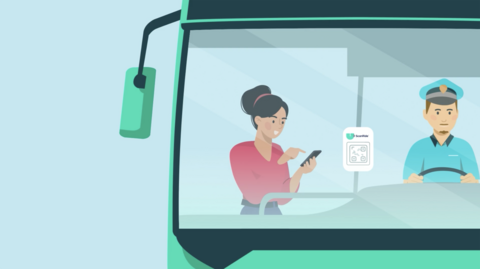Originally published on Science Direct's Research in Transportation Business & Management.
Vanpools are used in the United States as a form of commuter transportation, with up to 15 people commuting together in one shared vehicle.
This research examined commuter behavior to determine if those who use a vanpool to and from work experience a different level of stress than their single-occupant vehicle counterparts.
The outcome of this study is important to refining future studies to include vanpool participants as a standalone category to uniquely consider all specific modes individually. Follow-on research must continue to answer the additional questions of behavior choice to determine if knowledge of lowered stress will prompt users to change said behavior. Within the emerging field of Mobility-as-a-Service, it is useful to understand the differences in commute experience to fully support a holistic mobility framework, accounting for multiple modes that address a specific journey requirement.
In this study, performed over the course of two weeks, questionnaire respondents rated their personally-perceived level of stress before and after their commute on a Likert scale of 1 and 10.
Overall, the aggregated data revealed that vanpoolers experienced a 21% lower rate of self-reported commuting stress than their single-occupant vehicle counterparts. The difference between commute types was strongest for the after-work-to home portion of the commute. In that instance, vanpool commuters experienced a significant decrease in stress compared to their single-occupant counterparts even though their initial stress prior to the evening commute was higher. This indicates that the commute by vanpool helped them overcome a portion of the stress realized as a result of the experiences of their day.
Crissy Ditmore is Chair of TravelSpirit Foundation North America and works with the Coalition for Smarter Transportation both of which have a mission toward refining open and accessible tools for an integrated mobility future while unifying public and private interests for the common good. She is the Director of Strategy for Cubic Transportation Systems, working on the expansion of Mobility as a Service across the globe. With over 12 years’ experience in the mobility industry she continues to assist urban, suburban, and rural development of sustainable futures for complex mobility needs. Crissy holds a Masters of Project Management from the University of Alaska, Anchorage.




